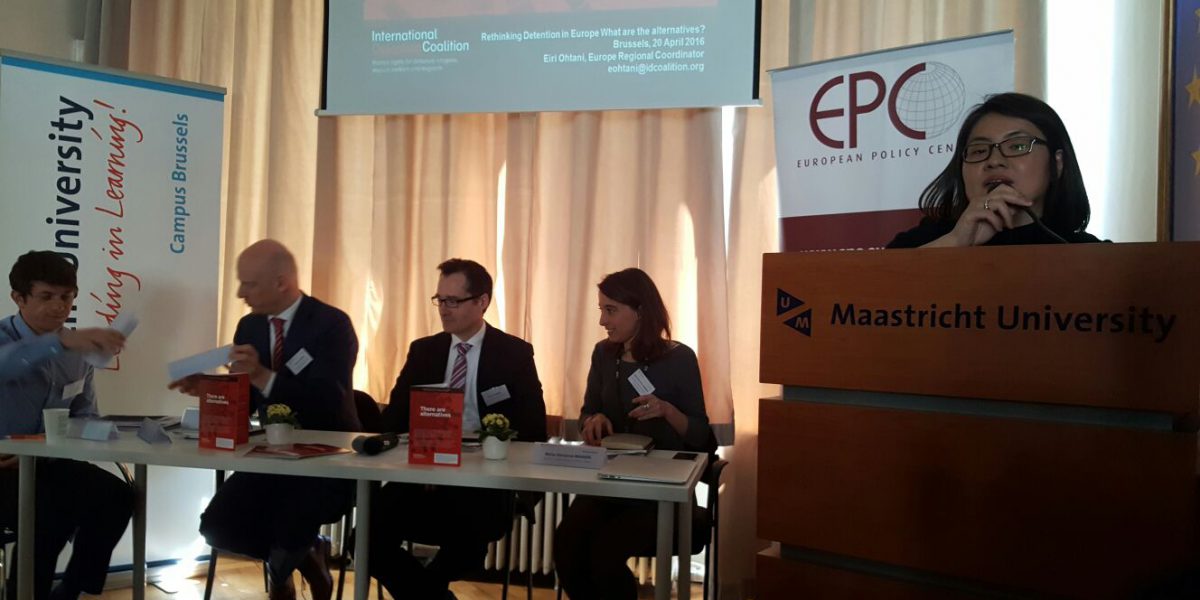Alternatives to Detention report and policy seminar
21 April 2016

Brussels, 21 April 2016 – JRS Europe was pleased to participate in the launch of new research by the International Detention Coalition entitled ‘There are alternatives’ yesterday in Brussels.
The updated report was launched as part of a policy seminar organised by the European Policy Centre together with Maastricht University and the International Detention Coalition. Alternatives to detention, particularly in the framework of the current asylum and migration legal framework, were examined.
Speaking at the event, JRS Europe policy and advocacy officer Mark Provera highlighted that the updated There Are Alternatives report is as relevant today as it was when first launched in 2011, building upon the extensive body of research that JRS has conducted in the past on detention and alternatives to detention.
The implementation of new approaches in an emergency context, like the establishment of “hotspots” and the EU-Turkey agreement, have both raised concerns regarding use of detention as a means of registering, relocating or returning people.
The EU-Turkey agreement has sparked significant protests from human rights organisations, the UNHCR and NGOs for turning reception facilities into detention centres in Greece. In light of this, it is vital to recall both the EU and member states’ commitments to use less coercive immigration practices before detention is applied both for asylum seekers and migrants.
Also joining yesterday’s panel, Dan Tyler of the Norwegian Refugee Council (NRC) which has been actively helping refugees in Greece since the autumn said: “We are quite alarmed that detention has been used in such an arbitrary way since the EU-Turkey deal and how the ‘hotspots’ were simply turned into detention centres. This deal has limited everyone’s ability to coordinate a humanitarian response to refugees there.”
The implementation of new approaches in an emergency context, like the establishment of “hotspots” and the EU-Turkey agreement, have both raised concerns regarding use of detention as a means of registering, relocating or returning people.
